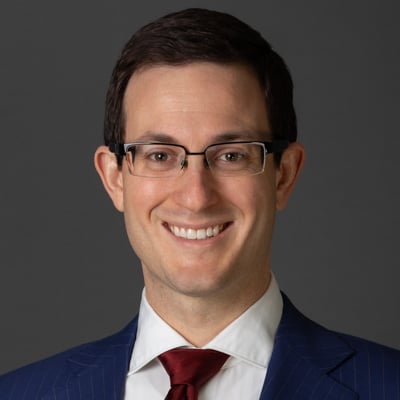High Court Won't Hear Google Appeal Over Oracle Copyrights
The U.S. Supreme Court on Monday declined to take on Google Inc.'s closely watched fight with Oracle Corp. over the eligibility of software for copyright protection.
The case between Google and Oracle was closely followed since it could have offered the court a chance to weigh in on exactly what kind of IP protections should be afforded to software.
The denial of certioriari leaves in place a 2014 ruling by the Federal Circuit that said Oracle could use copyright law to protect its so-called APIs — preset blocks of code that help developers write in Oracle’s popular Java programming language.
Google, which copied the APIs to design its Android operating system, wanted the court to overturn the decision on the grounds that the code was merely a functional “method of operation” that isn't eligible for copyright protection.
The case was closely followed, since it could have offered the court a chance to weigh in on exactly what kind of intellectual property protections should be afforded to software. The court limited the availability of patents on software last summer, but the extent to which copyright can be used to protect software is unsettled.
Many critics said the Federal Circuit had gone too far, improperly expanding copyright law — designed to protect creative expression — to cover functional material that's generally covered by patents. They also warned that the free use of APIs is crucial for various devices and computer programs to smoothly interact with each other.
As is customary, the justices did not explain their decision to pass on Google's petition. Justice Samuel Alito did not take part in the consideration of the case.
Monday's decision sends the case back to district court for further proceedings that will likely center on whether the fair use doctrine protects third-parties who use the protected APIs. Google and others have argued the code blocks must be copied and used to make computer programs interoperable with the Oracle’s widely used programming language.
Oracle initially sued Google in California federal court back in 2010, claiming the company's market-leading Android smartphone platform violated both copyrights and patents for Java. Oracle was looking for more than $1 billion in damages.
A federal jury cleared Google of the patent claims in May 2012, and a month later, the federal judge overseeing the case said the APIs in question couldn't be covered by copyright, either. The code at issue was merely a functional work that's not eligible for protection, the judge said at the time.
But in May 2014, the Federal Circuit reversed that ruling, setting up Google's appeal to the high court. In doing so, the court said that computer programs that serve a function are not "automatically" beyond the scope of copyright law.
"Under Ninth Circuit law, an original work — even one that serves a function — is entitled to copyright protection as long as the author had multiple ways to express the underlying idea," the court said. “Google, the court said, had other ways it could have created programming shortcuts, but copied the unique way that Java did it.”
The high court asked the government for input in January; in May, Solicitor General Donald Verrilli told the justices not to take the case.
Oracle is represented by E. Joshua Rosenkranz of Orrick Herrington & Sutcliffe LLP, and by Dale Cendali, Diana Torres and Joshua Simmons of Kirkland & Ellis LLP.
Google is represented by Daryl Joseffer of King & Spalding LLP, by Robert Van Nest of Keker & Van Nest LLP, and by in-house counsel Renny Hwang.
The case is Google Inc. v. Oracle America Inc., case number 14-410, in the U.S. Supreme Court.


